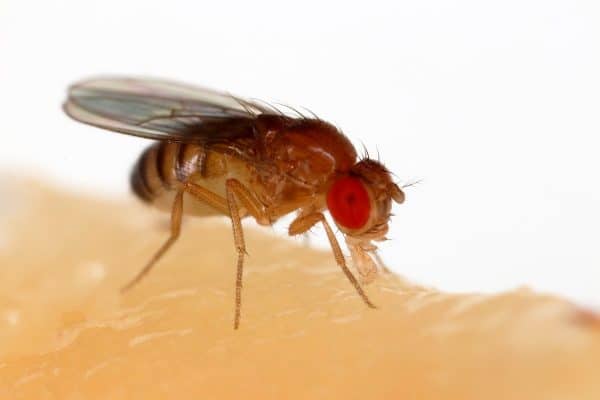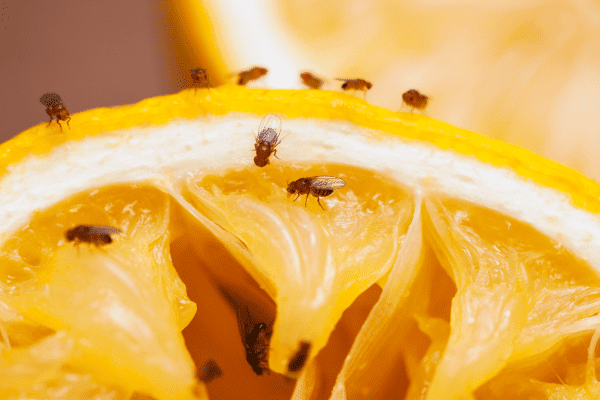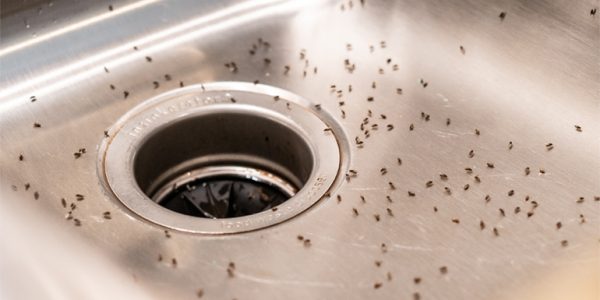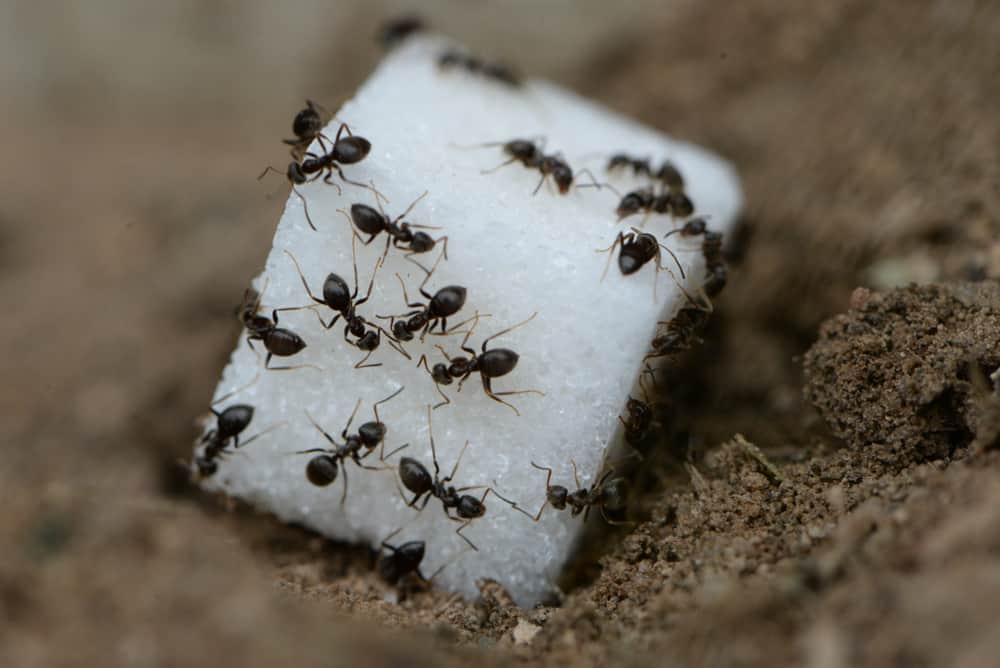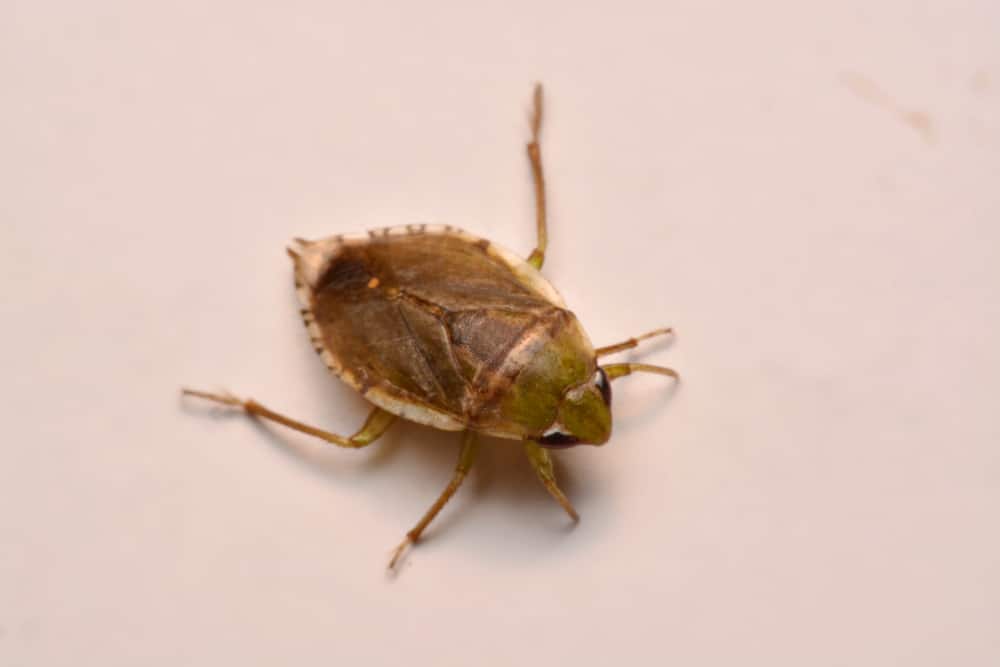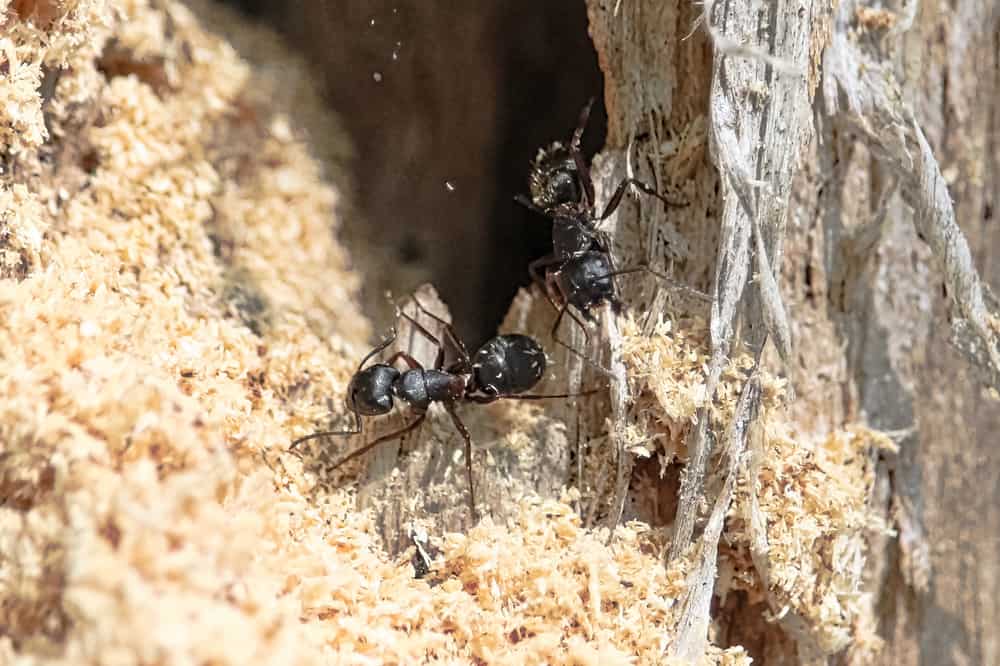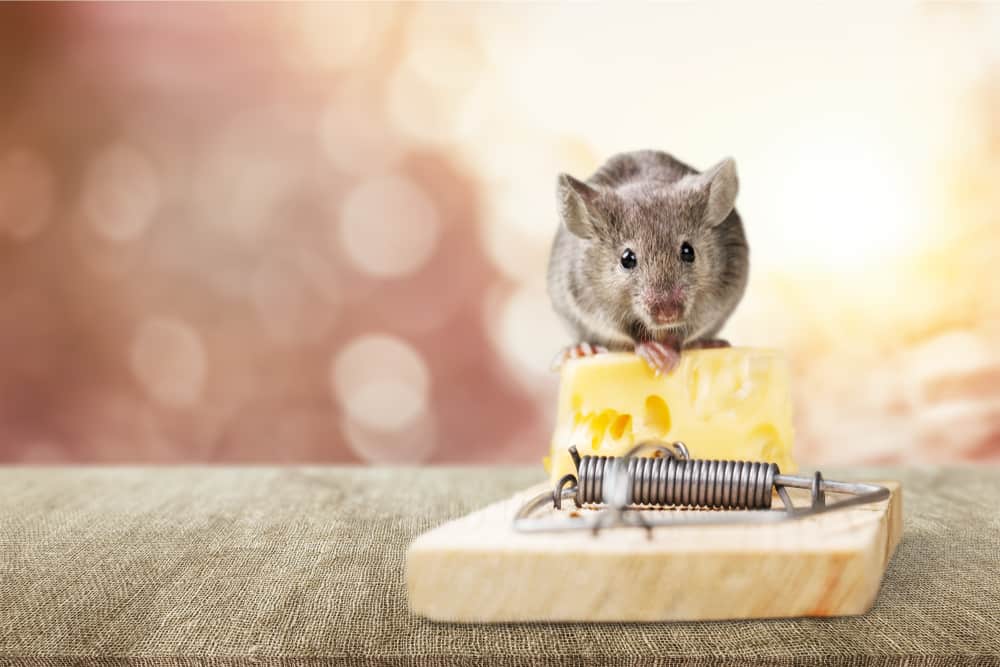Fruit flies are one of the most common species of fly in the world. They are often seen flying around homes, outdoor markets, and restaurants.
Because of that, most people are quick to call them pests.
But there’s more to them than just being a nuisance…
Like many other species of fly, fruit flies can contaminate food with bacteria that they’ve picked up from elsewhere.
Page Contents:
What Are Fruit Flies?
The fruit fly, known scientifically as Drosophila melanogaster, is a species of fly that is part of the scientific family Drosophilidae. Because they are found globally, fruit fly populations overlap with the populations of other flies.
Fruit flies are similar in appearance to other flies. Their bodies can range from yellowish-brown to black in color, and they have red eyes.
The average lifespan of a fruit fly is 50 days, nearly double the lifespan of a housefly.
As the name implies, fruit flies are drawn to the scent of fruit. While they enjoy eating fresh fruit, they’ll also prefer fruit that is left to rot or compost.
Fruit and vegetables not only sustain adult fruit flies…
They also give females a place to lay their eggs.
Why Do I Have Fruit Flies in My Home?
As mentioned earlier, fruit flies are attracted to fruits and vegetables. They especially enjoy produce that’s been left to ferment.
If you grow crops, there’s a good chance that fruit flies will be a common sight around your garden.
When looking for a place to live, fruit flies seek out damp, moist environments that are close to a food source.
Places where fruit flies can be found include:
- Sink drains
- Garbage disposals
- Trash bins
- Or anywhere food is left out
Fruit flies often enter a home through tiny cracks in walls or windows. In rare instances, however, they may be found inside grocery produce.
(Fortunately, this is incredibly rare).
Fruit flies are more likely to lay their eggs in rotting food than in fresh produce.
Signs of Fruit Fly Infestation
There are only 2 tell-tale signs of a fruit fly infestation: the flies themselves, and their larvae.
Watch out for large swarms of flies gathering in specific places. Fruit flies are most commonly found in kitchens, where food is most abundant. They may also inhabit your indoor garbage bins.
If there are a lot of flies surrounding your drain, then you’ve likely discovered a large nest.
Be on the lookout for fruit fly eggs and larvae as well. Eggs will appear off-white in color, while fruit fly maggots can range from white to black.
As the larvae become pupae, their skin will turn slightly darker before they enter adulthood.
How to Get Rid of Fruit Flies
Getting rid of fruit flies is rather simple. The best way to deal with an infestation is to get rid of household items that attract these flies in the first place.
To remove fruit flies from your home, take the following measures:
- Storing Your Food: Fruit flies, like all other species of fly, are drawn to the scent of produce. Seal your food in Tupperware containers or your fridge, where the flies will be unable to reach it.
- Remove Old Produce: The older a fruit or vegetable is, the more desirable it is to fruit flies. Throw away any overripe, rotten or fermenting produce to deprive fruit flies of food and a place to lay their eggs.
- Seal Entryways: Like any insect, fruit flies will enter a home through tiny cracks in walls, doors, or windows. By closing off these entry points, it will be more difficult for fruit flies to infiltrate your house.
- Proper Garbage Disposal: Sealing your garbage can go a long way in keeping fruit flies out of your home. Keep garbage bins closed, and don’t allow trash bags to overflow. If you have a built-in garbage disposal, clean it regularly to deter fruit flies from nesting inside.
What Do Fruit Flies Hate?
Flies have an incredibly powerful sense of smell. Some species are capable of detecting an odor from over 4 miles away.
And while fruit flies are attracted by the scent of many objects, there are some smells that even they can’t stomach.
While lavender smells pleasant to us, it’s completely overwhelming to fruit flies. Leave some lavender flowers around your house, or use lavender-scented objects, to repel any flies in your home.
Despite their name, fruit flies detest citrus fruits due to their strong scent. You can place lemon or orange slices around your house, where the scent will eventually drive away flies. Citrus-scented objects work just as well.
Certain herbs and spices are also natural fly deterrents. Leave objects like cinnamon, basil or peppermint in areas where fruit flies tend to gather. The smell will eventually overwhelm their senses and cause them to move elsewhere.

